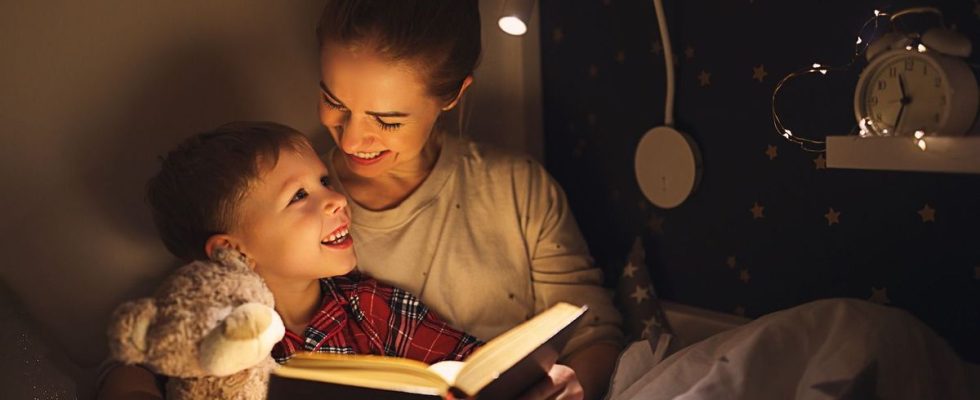Published on
Updated
Reading 2 min.
in collaboration with
Héloïse Junier (Early childhood psychologist and Doctor of psychology from the University of Paris)
Actress Lisa Whelchel recently revealed that she uses a new trick to get her children to confide at bedtime. An update on this technique with Héloïse Junier, childhood psychologist and doctor of psychology, author of the “Parents’ Survival Manual” (Dunod, 2023).
Few children talk in detail about their days. Their answers, on the atmosphere in class or on the contents of their plates in the canteen, often prove evasive. But a former actress from the series Funny Life, Lisa Whelchel, confides that she managed to open up a space for dialogue with her children at bedtime. Update on this technique.
A “confidence” moment dedicated to each child
It is in a podcast created by her daughter that the American actress, singer, songwriter, author and life coach reveals her trick.
“My life was very busy with three children so close together. So I wanted to make sure I had some one-on-one time with each of you“, she begins.
She then chooses bedtime to talk with them, because “children do everything to save time before sleeping“.
“So I decided to take advantage of it. After bathing, brushing teeth, and getting into pajamas, each of you could lie in bed and read a book while I spent at least 15 minutes with each one when they were little, and longer as they got older. I called it “window time” because it was precisely the moment when your souls opened up to me.”
During this tête-à-tête, the actress questions each of her children about the highlights of their day. Positive moments, as well as more difficult ones, can be talked about. The actress also makes herself available “for all questions” that his children want to ask him.
The advantage of this method? In addition to the fact that children are aware that this moment is dedicated to them, they can also talk about things they do not want to talk about by “in the presence of their brothers and sisters“.
So, if Lisa Whelchel employed this strategy, it is also “to prove to them that confiding in feels good”she concludes.
But for Héloïse Junier, author of “Parents Survival Manual” (Dunod, 2023), this time for discussion is beneficial to the child.provided that the child’s bond of attachment to his parent is sufficiently secure, that is to say that the child feels sufficiently confident to express to his parent what is wrong and why it is not right“.
The childhood psychologist, on the other hand, believes that it is interesting to ritualize this moment of exchange because, “time for individual and quality exchanges with our children is sometimes rare and is mainly dependent on our availability“.
The advantage of this ritual is that it comes so “create a daily window of exchange that the child can use if he or she feels the need. Generally speaking, all the quality and individual time that a child spends with his or her parent is beneficial and does good for the child, whatever the content of these moments (games, preparing dinner, stories, exchanges…)!”, confirms the specialist.
However, you must not fall into the opposite trap and appear too inquisitive with your child.
“It is essential to respect your pace, your desire or not to engage that day, your desire or not to discuss. While there are strategies to encourage your child’s confidences, it is impossible to trigger confidences on command. Exchanges between a child and his parent should, I think, maintain maximum authenticity and spontaneity.“, she concludes.
